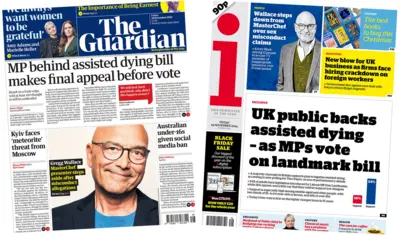We've updated our Privacy and Cookies Policy
We've made some important changes to our Privacy and Cookies Policy and we want you to know what this means for you and your data.
Coronavirus crisis could spark 'personal debt time bomb'
Image source, Getty Images
The coronavirus crisis could spark a "personal debt time bomb", according to Citizens Advice Scotland (CAS).
It has said the number of people unable to manage their debts may climb as the furlough scheme is reduced and job losses increase.
A survey for the service shows 27% of respondents were worried about making repayments during the pandemic.
Citizens Advice warned the situation could be causing financial hardship and is pushing more people into poverty.
It said support schemes during the lockdown have been welcome, but managing the situation as these begin to lift would "require thoughtful and significant intervention".
CAS financial health spokesman Myles Fitt said: "The issue is most often a result of insecure or low incomes which are simply not able to keep pace with the cost of living.
"While concerns about unemployment have understandably replaced it for the time being, the issue of personal debt will become a real challenge in the coming months and years.
"An income shock from a job loss or reduced pay, combined with the cost of arrears such as council tax, housing or energy bills built up due to Covid-19 payment holidays, will put individual and household finances under extreme pressure.
"Our fear is that many households will fall into unmanageable debt, causing financial hardship and pushing more people into poverty, or exacerbate existing poverty."
Financial burdens
The company which conducted the poll also warned people who are are already struggling financially could be hardest hit.
Spokesman Mark Diffley said: "Overall, a quarter of Scots remain concerned about paying utility bills and paying their rent (24% and 26% respectively), while 20% are concerned about paying for food and essentials and 35% about their income.
"Of additional concern is the finding that, once again, it is apparent that the highest levels of concern are recorded from those in the poorest socio-economic groups who are least likely be able to bear the financial burdens which they are facing as a result of the virus."
Top Stories
More to explore
Most read
Content is not available








